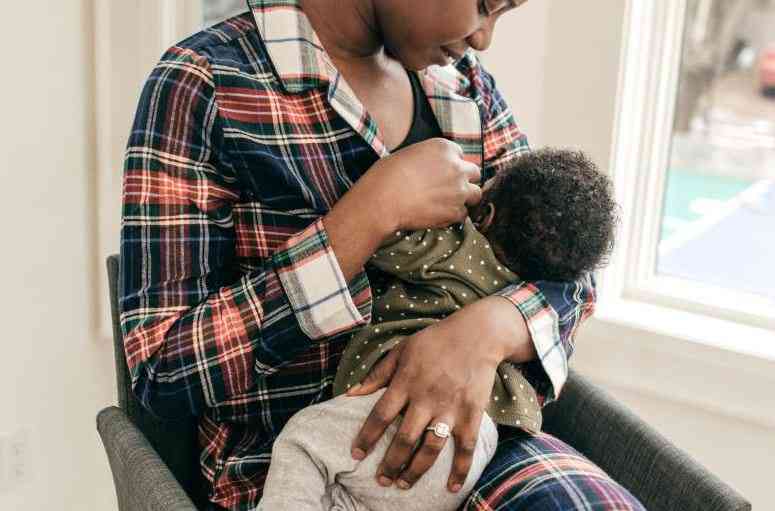
I stopped buying milk when a half litre packet hit the Sh60 mark a few weeks back. Here's why it happened. In recent years, I would take Sh100 and go out to buy milk and a newspaper (The Standard, if you're wondering). Every weekday morning! That's a wholesome meal of news, chai and last night's leftovers for breakfast – after a quick microwave warm in (because bread is something an African man leaves behind alongside high school).
When milk reached Sh50, with the paper at Sh60, it was annoying to look for that extra ten bob.
I'm sure you all ladies know how irritating it is, searching for that 'ashu' at the bottom of your handbag when it has rained and the lout of a tout decides your usual 'finje' (fifty bob) route is now Sh60.
So one recent Saturday, (because weekends I buy both mainstream papers), I get the gazetis and milk, and give a crisp 'rwabe' (two hundred bob) note and get back a sad twenty bob (with old Jomo fading on the surface) and it hits me that milk, which I'll pee after tea, is the same price as 'news,' which nourishes me. And that is how I became a member of #ClubStrungi. In recent weeks, on social media, there has been a flurry of basic 'foodie' jokes.
Cartoonist Kenny Kaburu asking for police escort because he is buying six packets of milk from Nakumatt. That meme of a Mluhya who has barricaded himself inside his house to cook ugali. The woman sleeping with simis to guard her precious packet of Nzoia sugar.
But the basic food situation in the country is not really funny – because no one laughs on an empty tummy. Picture the below scenario, for a second. You arrive at 8 am to queue outside a government 'supermarket' till 5 pm just to buy a packet of flour and toothpaste. At midday, as you are swooning on the queue with hunger, a gang of young men called malandros (Bad Amigos) raids the supermarket and you get shot in your (empty) stomach. You are not rushed to hospital till you call your girlfriend Gracia who has to take you there on a boda boda.
At the hospital, you need immediate surgery but most doctors have fled the country, nurses are on strike and the hospital lacks not only bandages, pain medication and antibiotics, but the water is an on/off affair. This isn't me making up a dystopia, it was the reality of one Nestor Ruiz earlier on this week in Venezuela. Forty years ago, like Kenya in 1978 in Africa, Venezuela was a South American gem.
In spite of years of corrupt regimes, it survived, at least until oil prices – Venezuela has huge oil reserves – collapsed in 2008. Senior military officers began to import maize, soap, toothpaste and deodorants into the black markets of Venezuela that threw prices off kilter. Colombian drugs flooded capital Caracas.
A new president called Maduro came in 2014 to preside over grand State looting, where tenders are awarded to connected people and cartels with no competitive bidding for the best deal. Airline companies like Lufthansa and American Airlines left the country; tourist numbers plummeted as insecurity and emigration (brain drain) soared as Venezuelans fled to neighbouring nations.
Real estate investment went to the toilet, and because Venezuela has borrowed heavily from China for great infrastructure projects that were meant to boost the economy – but now a giant unfinished rail network that was meant to link ports, cities and industrial centers lies rusting like a scar across the country – two thirds of their oil goes to China direct because Beijing isn't taking their worthless cash. Food and education programs have suffered.
Venezuela is like that man who cannot feed or school his children well because two thirds of his salary goes straight away to pay his debt to the bank – and his employer has to deposit his 'salo' to said bank.
Kenya is not yet at this 'apocalypse now' scenario, but in food prices, we can detect serious mechanical malfunction. We had better get competent mechanics soon before we all break down.
 The Standard Group Plc is a multi-media organization with investments in media platforms spanning newspaper print
operations, television, radio broadcasting, digital and online services. The Standard Group is recognized as a
leading multi-media house in Kenya with a key influence in matters of national and international interest.
The Standard Group Plc is a multi-media organization with investments in media platforms spanning newspaper print
operations, television, radio broadcasting, digital and online services. The Standard Group is recognized as a
leading multi-media house in Kenya with a key influence in matters of national and international interest.

